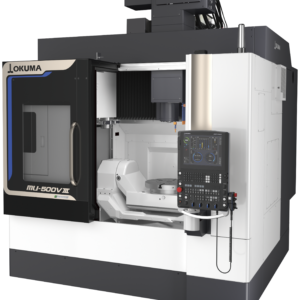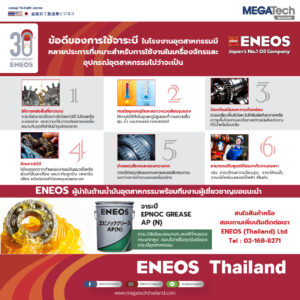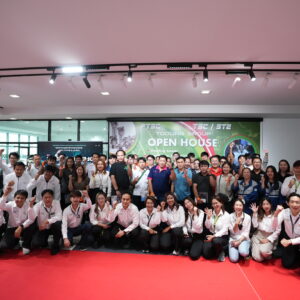Article by: Asst.Prof. Yod Sukamongkol
Faculty of Engineering, Ramkhamheang University
โครงข่ายของสรรพสิ่ง (Internet of Things, IoT) และปัญญาประดิษฐ์ (Artificial Intelligence, AI) เป็นเทคโนโลยีที่สำคัญที่จะนำภาคอุตสาหกรรมและประเทศไปสู่ยุค 4.0 ปัญญาประดิษฐ์ คือ ความฉลาดเทียมที่สร้างขึ้นให้กับสิ่งที่ไม่มีชีวิต ซึ่งปัญญาประดิษฐ์เป็นการเรียนรู้เกี่ยวกับกระบวนการการคิด การกระทำ การให้เหตุผล การปรับตัว หรือการอนุมาน สามารถสรุปได้ว่า ปัญญาประดิษฐ์จะทำหน้าที่เหมือนกับสมองของมนุษย์ เช่น หุ่นยนต์ที่มีปัญญาประดิษฐ์ในภาพยนตร์ จะมีพฤติกรรมและความสามารถเหมือนกับมนุษย์เพื่อตอบสนองความต้องการของมนุษย์ให้สามารถคิดและเป็นผู้ช่วยในด้านต่างๆ เช่น ระบบนำทางรถยนต์ไร้คนขับ ช่วยผู้อัจฉริยะในสมาร์ตโฟน หุ่นยนต์เสิร์ฟอาหาร เป็นต้น
ลักษณะของปัญญาประดิษฐ์ สามารถแบ่งได้ 4 กลุ่ม
1. การกระทำคล้ายมนุษย์ คือ (ก) สื่อสารกับมนุษย์ได้ด้วยภาษาที่มนุษย์ใช้อย่างภาษาอังกฤษ เป็นการประมวลผลภาษาธรรมชาติ เช่น การใช้เสียงสั่งให้คอมพิวเตอร์พิมพ์เอกสาร (ข) มีประสาทรับสัมผัสคล้ายมนุษย์ โดยสามารถมองเห็นและรับภาพได้โดยใช้อุปกรณ์รับสัญญาณภาพ (sensor) และ (ค) สามารถเรียนรู้ด้วยตัวเอง แล้วปรับตัวสู่สิ่งแวดล้อมที่เปลี่ยนไปได้
2. การคิดคล้ายมนุษย์ ก่อนที่จะทำให้เครื่องคิดอย่างมนุษย์ได้ ต้องรู้ก่อนว่ามนุษย์มีกระบวนการคิดอย่างไร เช่น ศึกษาโครงสร้างสามมิติของเซลล์สมอง การแลกเปลี่ยนประจุไฟฟ้าระหว่างเซลล์สมอง
3. การคิดอย่างมีเหตุผล หรือคิดถูกต้อง โดยใช้หลักตรรกศาสตร์ในการคิดหาคำตอบอย่างมีเหตุผล
4. การกระทำอย่างมีเหตุผล โดยจะตอบสนองต่อการกระทำแต่ละแบบโดยการนำเอาสภาพแวดล้อมเข้ามาวิเคราะห์ร่วมด้วย
ขั้นตอนการใช้ปัญญาประดิษฐ์
ระบบปัญญาประดิษฐ์เป็นข่ายงานระบบประสาทเทียม ซึ่งสร้างมาจากแบบจำลองคณิตศาสตร์ที่พัฒนาขึ้นมาเพื่อจำลองการทำงานของเครือข่ายประสาทในสมองมนุษย์ มีความสามารถในการเรียนรู้การจดจำแบบรูป และการอุปมานความรู้ เช่นเดียวกับความสามารถที่มีในสมองมนุษย์ ในระบบประสาทนั้นมีเซลล์ประสาทที่รับข้อมูลอินพุต สัญญาณข้อมูลอินพุตจะได้รับการประมวลผลภายใน จากนั้นสัญญาณข้อมูลเอาท์พุตจากเซลล์ประสาทจะถูกส่งออกมา เป็นรูปแบบที่ต่างกันไปตามอินพุตที่เข้ามา ถ้าหากปริมาณอินพุตมากพอข่ายงานระบบประสาทจะรวบรวมข้อมูลและวิเคราะห์เชิงสถิติ ซึ่งจะสามารถพยากรณ์ ประมาณค่าฟังก์ชัน และ จำแนกกลุ่มข้อมูล มีการเรียนรู้แบบเรียนรู้ด้วยตัวเอง จดจำและจำแนกหมวดความรู้อย่างชัดเจน รวมถึง สามารถตอบสนองอินพุตนั้นๆ ตามตรรกะที่ได้เรียนรู้มาสอดคล้องกับสถานการณ์ในขณะนั้น รูปแบบจำลองโครงข่ายเซลล์ประสาทเทียมนั้นได้ถูกพัฒนาขึ้นมามากมายหลายชนิด เพื่อให้คล้ายคลึงกับสมองมากที่สุด แต่ละชนิดจะมีคุณสมบัติแตกต่างกันไป ซึ่งสามารถเลือกประยุกต์ให้เหมาะสมกับงานในแต่ละประเภท
การใช้ปัญญาประดิษฐ์ในการอนุรักษ์พลังงานในโรงงาน
เนื่องจากปัญญาประดิษฐ์ ต้องการข้อมูลจำนวนมากเป็นอินพุตเพื่อทำให้เกิดการเรียนรู้ที่จะตอบสนองการสถานการณ์ต่าง ๆ ที่จะเกิดขึ้น ดังนั้น จึงมีความจำเป็นที่ต้องทราบค่าตัวแปรต่างๆ ในระบบ ที่มีผลต่อการใช้พลังงาน โดยใช้เครื่องมือวัด เซ็นเซอร์และสมาร์ทมิเตอร์ ที่มีความถูกต้องแม่นยำ เพราะมีความจำเป็นอย่างมากที่จะใช้ตรวจวัดและส่งข้อมูลค่าตัวแปรต่างๆ ของเครื่องจักรในระบบต่างๆ รวมถึงข้อมูลการใช้พลังงานแบบ real-time ข้อมูลทั้งหมดจะถูกจัดเป็นกลุ่มที่สะท้อนให้เห็นถึงสถานะของอุปกรณ์แต่ละชิ้น ซึ่งจะเห็นภาพรวมของอุปกรณ์ในรูปแบบของชุดข้อมูล และถูกส่งต่อไปยัง AI ซึ่งจะทำการบันทึกข้อมูลของแต่ละอุปกรณ์ ทำการวิเคราะห์การทำงานและสั่งการให้อุปกรณ์ทำงานเต็มประสิทธิภาพตามสถานการณ์นั้นๆ หากไม่รู้ว่าอุปกรณ์นั้นคือชนิดใดหรือไม่เคยเรียนรู้มาก่อน AI จะแจ้งให้ทีมผู้ใช้หรือขอให้ผู้เชี่ยวชาญให้ข้อมูลเพิ่มเติม ทำให้สามารถปรับปรุงประสิทธิภาพการปฏิบัติงาน ลดช่วงเวลาการหยุดเดินเครื่อง ช่วงบริหารจัดการเครื่องจักร และสามารถใช้พลังงานอย่างประหยัดและมีประสิทธิภาพในที่สุด
ปัจจุบันกรมโรงงานอุตสาหกรรม (กรอ.) กระทรวงอุตสาหกรรม เริ่มมีการผลักดันให้มีการใช้ปัญญาประดิษฐ์ในระบบต่างๆ ในโรงงาน เช่น การยกระดับหม้อไอน้ำเป็น Smart boiler ในระบบผลิตไอน้ำ โดยจำเป็นต้องตรวจวัดตัวแปรที่มีผลต่อปริมาณการใช้เชื้อเพลิงเพื่อใช้เป็นข้อมูลพื้นฐานและการวิเคราะห์ตามตาราง

หลังจากที่ AI ได้วิเคราะห์และทราบถึงสถานการณ์ทำงานของหม้อไอน้ำแล้ว ก็จะสั่งการหรือควบคุมการทำงานของหม้อไอน้ำให้มีประสิทธิภาพสูงสุดและเหมาะกับสภาวะการทำงานนั้นๆ เช่น เปิด-ปิดวาล์วควบคุมการโบลว์ดาวน์ หรือ หรี่-เร่งอัตราการไหลของน้ำป้อนหรือเชื้อเพลิง เป็นต้น ทำให้หม้อไอน้ำมีการใช้พลังงานอย่างประหยัดและมีประสิทธิภาพสูงสุด นอกจากนี้ปัญญาประดิษฐ์ยังสามารถทำให้การใช้งานหม้อน้ำเป็นไปอย่างปลอดภัย เช่น มีการควบคุมระดับน้ำ ความดันภายใน และอุณหภูมิ เป็นต้น ทำให้ความเสี่ยงในการเกิดอุบัติเหตุลดลง อีกทั้ง ความอัจฉริยะของปัญญาประดิษฐ์จะทำให้หม้อไอน้ำสามารถควบคุมหรือกำหนดการปลอดปล่อยมลภาวะทางอากาศหรือทางน้ำให้สอดคล้องกับข้อกำหนดกฎหมายและเป็นมิตรกับสิ่งแวดล้อม
อย่างไรก็ตามค่าใช้จ่ายในการปรับเปลี่ยนหรือติดตั้งปัญญาประดิษฐ์ในระบบต่างๆ ในโรงงานนั้นยังมีมูลค่าค่อนข้างสูงเพราะต้องมีการติดตั้งเครื่องมือวัด ระบบ IoT และ ระบบอัตโนมัติต่างๆ เพิ่มเติมจำนวนมาก จึงต้องศึกษาความคุ้มค่าทางเศรษฐศาสตร์ควบคู่ไปกับความพร้อมของสถานที่และการพัฒนาบุคคลากรให้มีความพร้อมให้สามารถใช้ประโยชน์จากเทคโนโลยีเหล่านี้ได้ในหลายๆ ด้าน ไม่ว่าจะเป็นด้านการทำงาน หรือการใช้ชีวิต นอกจากนี้ยังมีความจำเป็นที่จะต้องปรับปรุงการปัญญาประดิษฐ์ให้ดียิ่งขึ้นในอนาคต โดยการใช้เทคนิคใหม่ๆ ในกระบวนการคิดที่ต้องเน้นความถูกต้องของข้อมูลและตรรกะในการตอบสนองที่มีประสิทธิภาพ มีความปลอดภัยต่อชีวิต ทรัพย์สิน และสิ่งแวดล้อมมากขึ้น













